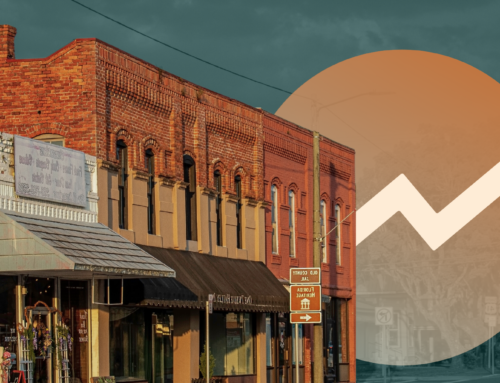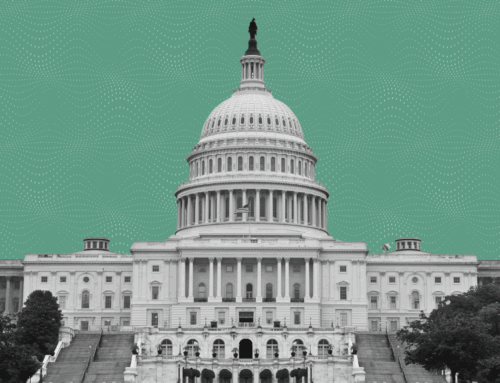Washington, D.C. – Today, the Economic Innovation Group (EIG) released “Uplifting America’s Left Behind Places: A Roadmap for a More Equitable Economy,” a bold new policy framework to guide policymakers in addressing geographic inequality and fostering resilience in left behind communities across America. The brief outlines EIG’s recommendations for institutional reforms to existing federal agencies and programs as well as powerful new place-based policies to advance inclusive economic development nationwide.
The longest economic expansion in U.S. history, from June 2009 to February 2020, failed to reach many communities across the country. In fact, spatial inequality, or geographic unevenness in economic well-being, has widened over the last several decades. While some gaps in economic well-being are natural, there is nothing inevitable about the facts that two-thirds of metropolitan census tracts that were high-poverty in 1980 remained so in 2018, or that from 2000 to 2018, economically distressed zip codes experienced no net job growth—whereas prosperous zip codes added 8.7 million jobs in the same time period. Minorities are especially disadvantaged by deep spatial inequities, and the pandemic has served as a painful reminder that economic, racial, and health inequalities all converge spatially.
Status quo federal economic development is piecemeal and not up to the challenge of “building back better.” Building an inclusive economy and empowering communities to effectively navigate disruptions on the horizon—such as the climate crisis and long-term industrial change—will require institutional reform. By placing geographic inequality at the heart of the domestic policy agenda, a new administration and Congress have a chance to recalibrate the federal approach to economic development and directly empower more Americans to participate in the country’s growth and thrive.
“In recent decades, U.S. economic development policy has been hopelessly behind the pace of economic change and sorely lacking in ambition,” said EIG President and CEO John Lettieri. “Policymaking has been slow to respond to growing gaps in well-being between thriving and stagnant communities—gaps that have a profound influence over who has access to economic opportunity in our country. The time has come to do much more to foster resilience and dynamism in the regions and communities that need it most.”
EIG’s framework for place-conscious policymaking presents ambitious, bipartisan ideas that can infuse all corners of domestic economic policy and form the foundation of a more forward-leaning economic and community development policy agenda. EIG’s roadmap recommends the establishment of a centralized entity to bring strategic direction to federal economic development policy and provides an outline for the administration to gauge whether its agenda—including the pending COVID-19 relief bill, forthcoming infrastructure bill, and immigration plans—matches the country’s current needs.
“The bold, bipartisan reforms EIG proposes have the power to dramatically improve the prospects of thousands of previously left-behind American communities,” said Kenan Fikri, EIG’s Research Director. “With the climate crisis poised to trigger massive economic disruptions in the near future, EIG’s framework will help communities adapt instead of decline, finding the opportunity in economic change that has proven so elusive for so many.”
Key recommendations include:
- Create a strong centralized entity to marshal resources and bring strategic direction to federal economic and community development policy, such as an empowered Economic Development Administration or a new cabinet-level entity. Such an entity would consolidate related activities from existing agencies under a single organizational roof and provide coherence, leadership, vision, and final accountability for economic development.
- Routinely assess the likely geographic impact of policies as they are being incubated in congressional committees or at the White House and reviewed by the Office of Management and Budget for opportunities to advance regional equity.
- Commit to a U.S. Domestic Development Corporation that expands the range of tools in the economic development finance toolkit to nurture more private sector activity in the country’s persistently lagging regions and communities.
- Improve access to capital in distressed, disinvested communities, including by passing the New Business Preservation Act and making improvements to Opportunity Zones.
- Bolster capacity and connectivity in disadvantaged areas, including by accelerating broadband deployment.
- Invest in people and families to boost local human capital, including by creating a Heartland Visa immigration program and the Workforce Development through Post-Graduation Scholarships Act for communities facing demographic decline and widespread population loss.
- Reinvigorate competition policy to support startup formation and worker mobility, including by banning noncompete agreements through the bipartisan Workforce Mobility Act.
EIG media contact: [email protected]
About the Economic Innovation Group (EIG)
The Economic Innovation Group (EIG) is an ideas laboratory and advocacy organization whose mission is to advance solutions that empower entrepreneurs and investors to forge a more dynamic American economy. Headquartered in Washington, D.C. and led by an experienced, bipartisan team, EIG convenes leading experts from the public and private sectors, develops original policy research, and works to advance creative legislative proposals that will bring new jobs, investment, and economic growth to communities across the nation. For more information, visit eig.org.
###






